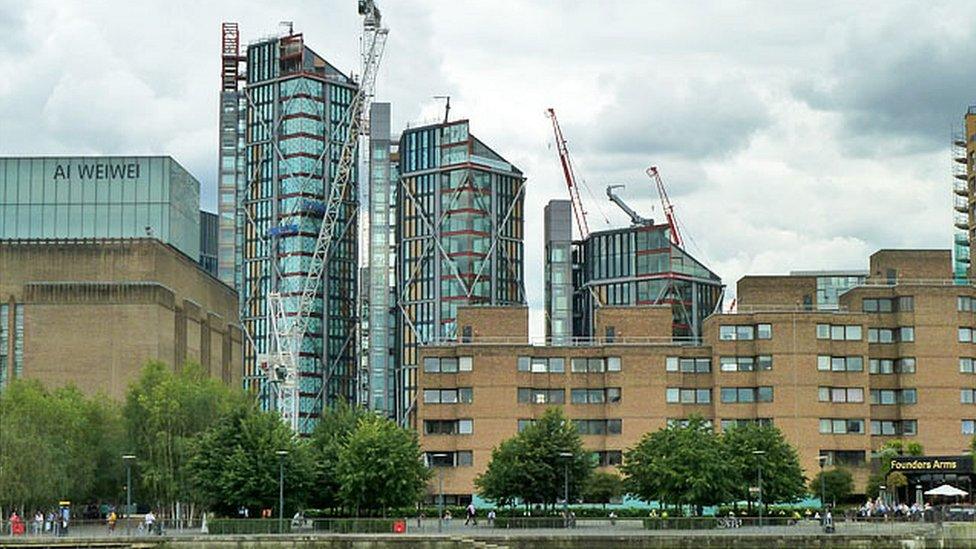Tate Modern privacy row residents dealt legal blow
- Published
In 2016, residents of Neo Bankside were being watched "every day" by Tate Modern visitors
Flat owners overlooked by Tate Modern visitors on a viewing platform have been dealt a legal blow in a row over their privacy.
Residents of Neo Bankside want to stop "hundreds of thousands of visitors" watching them from the platform.
But the Court of Appeal has dismissed their claim to privacy saying they should "lower their solar blinds".
The hearing came after an injunction last February required the Tate to stop its visitors observing their flats.
When the four residents brought the original injunction against the gallery it would have meant the gallery needed to prevent the public observing the flats by "cordoning off" parts of the platform or "erecting screening".
But at the latest hearing, the gallery argued the platform provided "a unique, free, 360-degree view of London", and residents could simply "draw the blinds" instead.

Owners of the flats said they had no privacy when their blinds were open
Agreeing, Mr Justice Mann suggested residents "lower their solar blinds" or "install privacy film (or) net curtains".
Master of the Rolls Sir Terence Etherton added: "The court has dismissed the appeal on the basis that overlooking does not fall within the tort of nuisance."
In a witness statement for a previous hearing Lindsay Urquhart, one of the claimants, said: "I feel as though my life revolves around the viewing platform's opening hours."
Another claimant, Ian McFadyen said: "When our blinds are open and the viewing platform is in use, we are more or less constantly watched, waved at, photographed and filmed by people on the viewing platform."
'Very disappointed'
In a statement after the ruling, Natasha Rees, said her clients were considering a further application to the Supreme Court.
"The leaseholders are obviously very disappointed with the outcome of the appeal", she added, given that the High Court had previously supported they were overlooked.
The court found there are already other laws which bear on privacy.